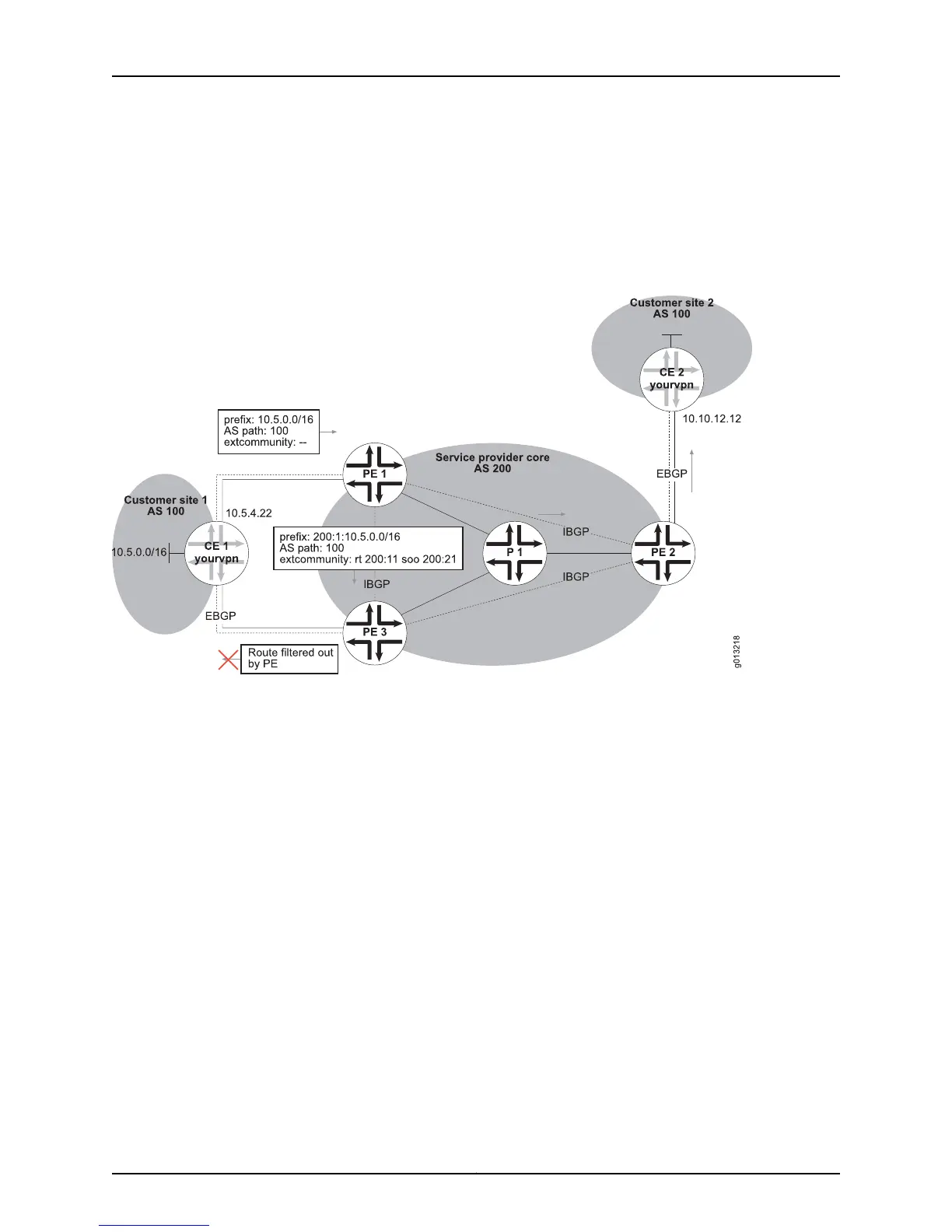host1:pe1(config)#router bgp 200
host1:pe1(config-router)#address-family ipv4 unicast vrf yourvpn
host1:pe1(config-router)#neighbor 10.5.4.22 remote-as 100
host1:pe1(config-router)#neighbor 10.5.4.22 as-override
host1:pe1(config-router)#neighbor 10.5.4.22 site-of-origin 200:21
...
Figure 97: Preventing Potential Routing Loops in the Network
neighbor site-of-origin • Use to set a site of origin that is included in the extended community list for routes
received from the specified peer.
• If you use this command to configure a site of origin for routes from a peer, then routes
advertised to that peer that contain this site of origin are filtered out and not advertised.
This behavior is followed regardless of whether the neighbor send-community
extended command has been issued for the peer.
• The configured site of origin does not override the site of origin if it is already present
in the extended community list of a route.
• If you specify a BGP peer group by using the peer-group-name argument, all the
members of the peer group inherit the characteristic configured with this command.
You cannot override the characteristic for a specific member of the peer group.
• The site of origin is applied to all routes that are received or advertised to all after you
issue the command. The session is not bounced.
• To apply the new policy to routes that are already present in the BGP routing table,
you must use the clear ip bgp command to perform a soft clear or hard clear of the
current BGP session.
• Example
host1(config-router)#neighbor 10.25.32.4 site-of-origin 200:21
Copyright © 2010, Juniper Networks, Inc.450
JunosE 11.2.x BGP and MPLS Configuration Guide

